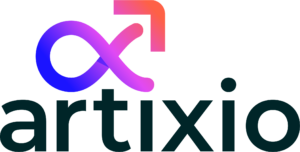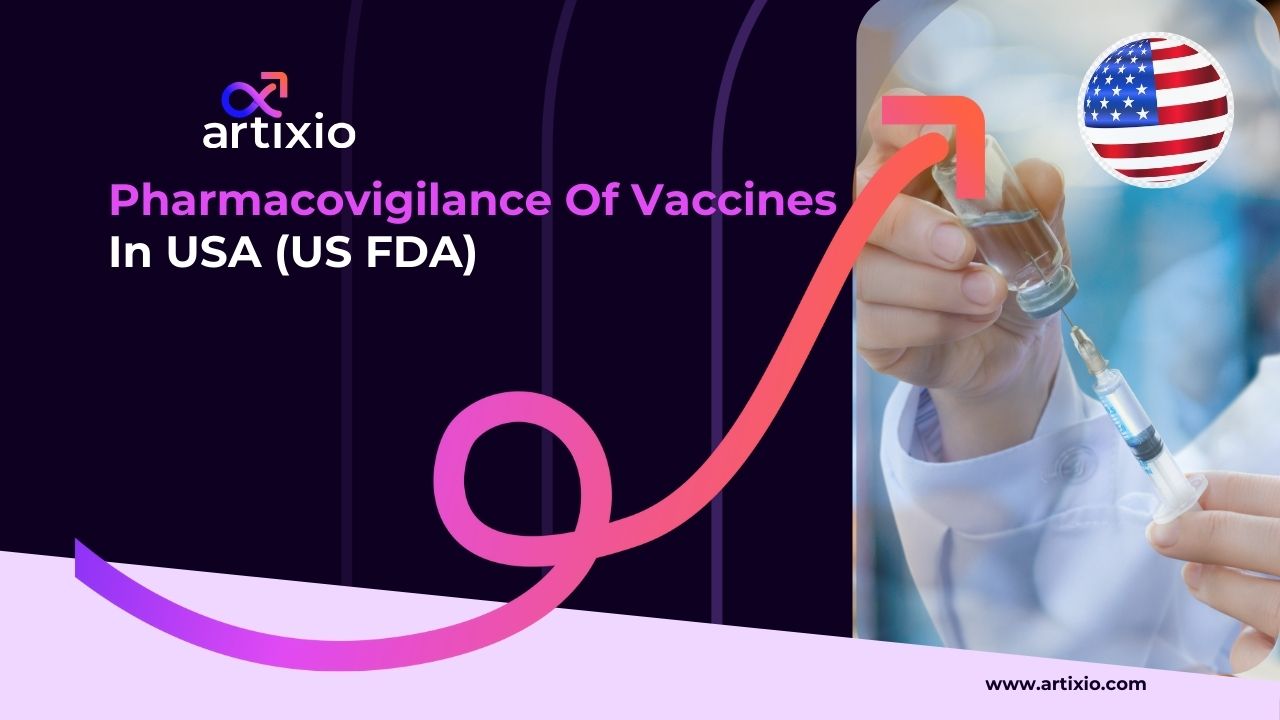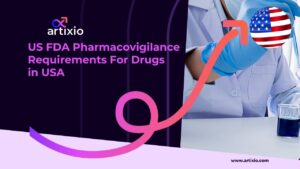Pharmacovigilance is the science and activities related to the detection, assessment, understanding, and prevention of adverse effects or any other vaccine-related problems. In the United States, vaccine pharmacovigilance is a critical component of public health, supported by an intricate network of systems and protocols designed to ensure that vaccines are safe and effective. Companies like Artixio, with their robust pharmacovigilance services, play a vital role in this ecosystem, helping vaccine manufacturers and healthcare providers navigate the complex regulatory landscape.
Regulatory Framework of Vaccines in USA
The U.S. vaccine safety surveillance framework is one of the most advanced globally, underpinned by the collaboration between multiple agencies, primarily the FDA and CDC.
FDA’s Center for Biologics Evaluation and Research (CBER): CBER is the leading authority for vaccine regulation in the United States. It reviews and approves vaccines through the Biologics License Application (BLA) process, ensuring that only vaccines meeting stringent safety and efficacy criteria reach the market.
Vaccine Adverse Event Reporting System (VAERS): VAERS serves as a national early warning system to detect possible safety issues with U.S.-licensed vaccines. Both healthcare professionals and the public can report adverse events, which are then analyzed by the FDA and CDC to identify potential safety concerns.
Vaccine Safety Datalink (VSD): The VSD is a collaborative project between the CDC and several integrated healthcare organizations. It uses large linked databases to monitor vaccine safety and conducts rigorous epidemiological studies to evaluate vaccine safety in real-world settings.
Clinical Immunization Safety Assessment (CISA) Project: The CISA project provides in-depth evaluations of vaccine safety issues, offering clinical consultation to healthcare providers and conducting research to understand the mechanisms of vaccine-related adverse events.
Advanced Signal Detection and Risk Management
One of the key aspects of pharmacovigilance is the early detection of safety signals—patterns that may suggest an adverse effect related to a vaccine. In the U.S., sophisticated data analytics and real-world evidence (RWE) are increasingly used to identify these signals.
Real-World Evidence (RWE) and Artificial Intelligence (AI): The integration of RWE and AI into pharmacovigilance allows for the continuous analysis of vast datasets from diverse populations. This approach enhances the ability to detect subtle safety signals that may not be apparent in clinical trials, ensuring that potential issues are identified and addressed swiftly.
Risk Evaluation and Mitigation Strategies (REMS): These strategies are implemented when a vaccine is associated with potential risks that need to be managed. They include specific measures such as additional safety studies, patient education programs, and controlled distribution to minimize risk while ensuring the vaccine’s benefits are fully realized.
Role of Manufacturers in Pharmacovigilance of the Vaccines in USA (US FDA)
Vaccine manufacturers are required to report any adverse events related to their products. The FDA mandates Periodic Safety Update Reports (PSURs), which provide a comprehensive overview of a vaccine’s safety profile over time. Manufacturers must ensure these reports are thorough, accurate, and submitted promptly.
Adverse Event Reporting: Manufacturers must report certain serious adverse events to VAERS within a specified timeframe. These reports are critical for ongoing safety monitoring and for identifying any new risks associated with the vaccine.
Collaborative Research and Safety Assessments: Manufacturers often collaborate with agencies like the CDC to conduct post-licensure studies, further ensuring the vaccine’s safety in diverse populations. This collaboration is essential for maintaining public trust in vaccines and ensuring their continued use in public health programs.
International Collaboration and Harmonization
The global vaccine development and distribution necessitate close collaboration between U.S. regulatory bodies and international counterparts. The FDA and CDC work with organizations such as the European Medicines Agency (EMA) and the World Health Organization (WHO) to harmonize safety practices and ensure that safety signals are identified and addressed globally.
Global Safety Surveillance: Harmonized international guidelines facilitate the rapid sharing of safety information across borders. This ensures that any potential safety issue identified in one country can be quickly assessed and mitigated globally.
Artixio’s Role in Enhancing Vaccine Safety
Artixio is uniquely positioned to support vaccine manufacturers in meeting the stringent pharmacovigilance requirements set by U.S. regulatory bodies. With extensive experience in pharmacovigilance, Artixio offers a comprehensive suite of services designed to help manufacturers manage safety data, detect signals, and implement effective risk management strategies.
Customizable Pharmacovigilance Solutions: Artixio provides tailored services that include safety data management, regulatory submissions, and global safety data integration. These services ensure that manufacturers can comply with U.S. regulations while maintaining the highest safety standards.
Expert Consultation and Risk Management: Artixio’s team of experts is equipped to handle complex safety issues, providing actionable insights and strategies to mitigate risks and ensure compliance with FDA and CDC requirements.
Proactive Safety Monitoring: By leveraging cutting-edge technologies and RWE, Artixio helps manufacturers stay ahead of potential safety issues, ensuring that their vaccines are safe for the public and compliant with all regulatory requirements.
Pharmacovigilance is a critical aspect of vaccine safety in the United States, with a robust framework in place to ensure that vaccines are safe and effective. For decision-makers in the vaccine industry, partnering with a trusted provider like Artixio can provide the expertise and support needed to navigate this complex landscape. With Artixio’s comprehensive pharmacovigilance services, vaccine manufacturers can confidently manage safety data, detect and address potential risks, and ensure compliance with all regulatory requirements. This not only enhances vaccine safety but also builds public trust, ultimately contributing to the success of vaccination programs worldwide.
References
- https://www.cdc.gov/vaccine-safety/?CDC_AAref_Val=https://www.cdc.gov/vaccinesafety/index.html
- https://www.fda.gov/vaccines-blood-biologics/vaccines




